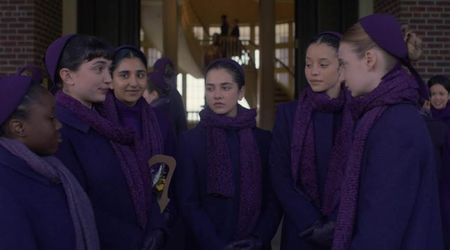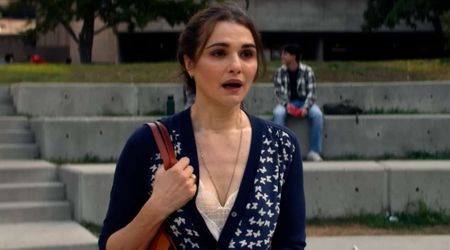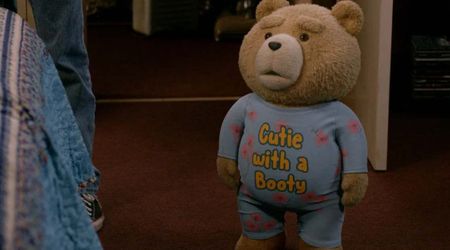'The Good Lord Bird' Episode 1 Review: Avoiding the White savior trope, show portrays crazy Antebellum America

Spoilers for 'The Good Lord Bird' Episode 1 'Meet the Lord'
Telling the story about a White abolitionist in Antebellum America is a tightrope to walk. The most obvious and predictable problem that can arise in it is how White and Black people are portrayed. And oftentimes, in stories like these, the White man is shown as a savior compared to the anti-abolitionist White men. And the Black people are shown as brave but humble, subservient and loyal, scared but willing to die for the cause.
‘The Good Lord Bird’, created by Mark Richard and Ethan Hawke, does an excellent job of not doing this. The show tells the story of the legendary abolitionist John Brown. But the show doesn’t make him out to be the White savior to be revered. In fact, Hawke goes the extra mile to portray Brown as a religious fanatic who thinks he is fulfilling god's duty by freeing people of color.
Hawke's Brown is a delusional, deranged man who loves to quote the Bible, make loud and exuberant declarations of his cause and is violent and vengeful towards those who do not see his cause as the only noble one. Brown, in the show, talks to rabbits, kills with fervor and prays long enough to annoy everyone in his religious militia. But he is, nonetheless, a good man with a good heart.
And the show also does a good job of representing the oppressed. For example, Henry Shackleford or Onion (Joshua Caleb Johnson), a boy that Brown mistakes for a girl (because he heard Henrietta instead of Henry), who is also the narrator of the story, is not shown as subservient or unconditionally admiring Brown. Onion thinks he is off his rockers as well. Onion is scared of him. But Onion is also objective about what he sees.
In the first episode, in 1856, we see Brown save Onion from a man called Dutch Henry Sherman (played by the incomparable villain David Morse). As Brown brings Onion into his little religious militia and presents him with a dress intended for his daughter, we see life in Brown's world — his beliefs, his sons, who grow impatient with his long prayers, and his utter conviction in punishing those who even tolerate the idea of slavery.
Brown, even though he lived and died much before the origination of the apocryphal statement "If there’s a Nazi at the table and 10 other people sitting there talking to him, you got a table with 11 Nazis,” surely believed in that. An example of this can be seen when he beheads a man who voted for the continuation of slavery even though he was too poor to own a slave.
‘The Good Lord Bird’, as we can see from the first episode, also manages to do something many shows and films are unable to — portray the utter rambunctious and ridiculous times Antebellum America was. The loud, pompous statements, the trigger-happiness and the chaos.
The episode's very end is telling of just how much Brown is committed to the cause. When his son Frederick (Duke Davis Roberts) is killed by a former ally, he chooses not to partake in revenge, for his cause is greater than such pettiness. And when his sons refuse to participate in his crusade any further, he takes off, understanding their position but unwilling to stray from his path.
Johnson's narration is one of the bigger factors driving the show, and it is incredibly well done. Add Hawke’s manic performance to the mix, and the show’s “true” story to the mix, and we have a masterpiece at hand.
'The Good Lord Bird' airs on Sundays on Showtime, at 9 pm ET/PT.










